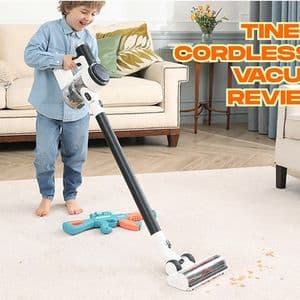Why People Use Robot Vacuums on Hardwood Floors
Hardwood floors are elegant but require regular maintenance to keep them looking their best. Traditional sweeping and mopping take time—and let’s face it—not everyone enjoys doing them daily.
That’s where robot vacuums come in.
These automated cleaners are designed to navigate and clean hard surfaces without constant supervision. With features like scheduled cleaning, smart navigation, and auto-docking, it’s easy to see the appeal.
But is it truly safe and effective?
How Roombas Work on Hardwood Surfaces
Roombas are equipped with sensors, soft rubber wheels, and brushes designed to adjust to different floor types. When they encounter hardwood, they reduce brush speed and increase suction for optimal dirt pickup.
But here's the real question:
Can they do that without damaging your floors?
The short answer is: it depends.
Will Roomba Scratch Hardwood Floors?
This is a common concern—and a valid one.
Roombas are designed to be gentle on hard surfaces, but several factors influence their behavior:
-
Debris in the wheels or brushes can act like sandpaper.
-
Worn-down brushes may drag rather than sweep.
-
Loose or uneven boards might cause the unit to snag or bounce.
Generally, if your Roomba is well-maintained and your floor is sealed and smooth, scratches are unlikely. But if you’re using a low-end or older model without rubberized parts, the risk increases.
A helpful tip: clean your Roomba regularly and inspect the brushes and wheels for trapped grit.
Benefits of Using a Roomba on Hardwood
Still wondering whether it’s worth it? Let’s break down the benefits.
1. Daily Dust Removal
Hardwood floors tend to accumulate dust quickly. A Roomba can be scheduled to vacuum daily, reducing allergens and keeping your home tidy without effort.
2. Pet Hair Control
If you have pets, you already know how fur can collect in corners. Roombas are especially effective at collecting pet hair before it settles or embeds in cracks.
3. Hands-Free Cleaning
No more sweeping under beds or couches. Roombas are low-profile and smart enough to reach tight spaces.
Read more: https://toolhome.org/does-a-roomba-work-on-hardwood-floors/
Potential Drawbacks to Consider
Of course, robot vacuums aren’t perfect.
1. Limited Deep Cleaning
Roombas vacuum, but they don’t mop or polish. Over time, hardwood may lose its shine unless paired with a traditional clean every so often.
2. Noise on Wood
Hardwood can amplify sound. While Roombas are quieter than uprights, they may still be loud on certain wood types, especially older planks.
3. Navigational Hiccups
Furniture legs, uneven thresholds, or glossy finishes can confuse the sensors, leading to minor bumps or missed spots.
Tips for Safe Use of a Roomba on Hardwood
Want to minimize any risks while maximizing performance? Follow these best practices:
Clean the Brushes and Wheels Weekly
Dirt buildup can cause unnecessary friction. Use a soft cloth or brush to clean moving parts regularly.
Clear the Floor Before Each Run
Pick up small objects, cords, and loose rugs. Even a stray coin can lead to a dragging incident.
Use Virtual Walls or No-Go Zones
If your home has delicate flooring areas, consider setting up virtual boundaries to keep your Roomba out.
Choose Rubber Brush Models
Newer Roombas come with rubber extractors instead of bristles. These are less abrasive on hardwood surfaces and less prone to tangling.
What Makes a Good iRobot for Wood Floors?
Not all robot vacuums are created equal. If you’re in the market or simply curious, the best iRobot for wood floors typically features:
-
Soft, rubberized rollers to avoid scratches
-
Precision sensors to detect drop-offs and transitions
-
Strong suction with adaptive cleaning
-
Multi-surface modes to adjust from rugs to wood seamlessly
These features make a difference, especially if you have mixed flooring or valuable wood that you want to preserve long-term.
How to Extend the Life of Your Hardwood Floors
Using a Roomba is just one piece of the puzzle. To keep your hardwood floors in peak condition:
-
Vacuum often to reduce abrasive particles
-
Avoid excess water during mopping
-
Apply a protective finish every few years
-
Use floor protectors under furniture legs
A well-maintained hardwood floor will not only look better but also be easier for your Roomba to clean effectively.
Final Thoughts
So, can you use a Roomba on hardwood floors? Absolutely. With proper care, Roombas are a helpful tool in any wood-floored home. They offer a hands-free solution for everyday messes, pet hair, and dust—without compromising the beauty of your flooring.
Just remember:
Keep your device clean, choose features designed for wood surfaces, and support your vacuuming with routine floor maintenance.
Used wisely, a Roomba can be a hardwood floor’s best friend.










